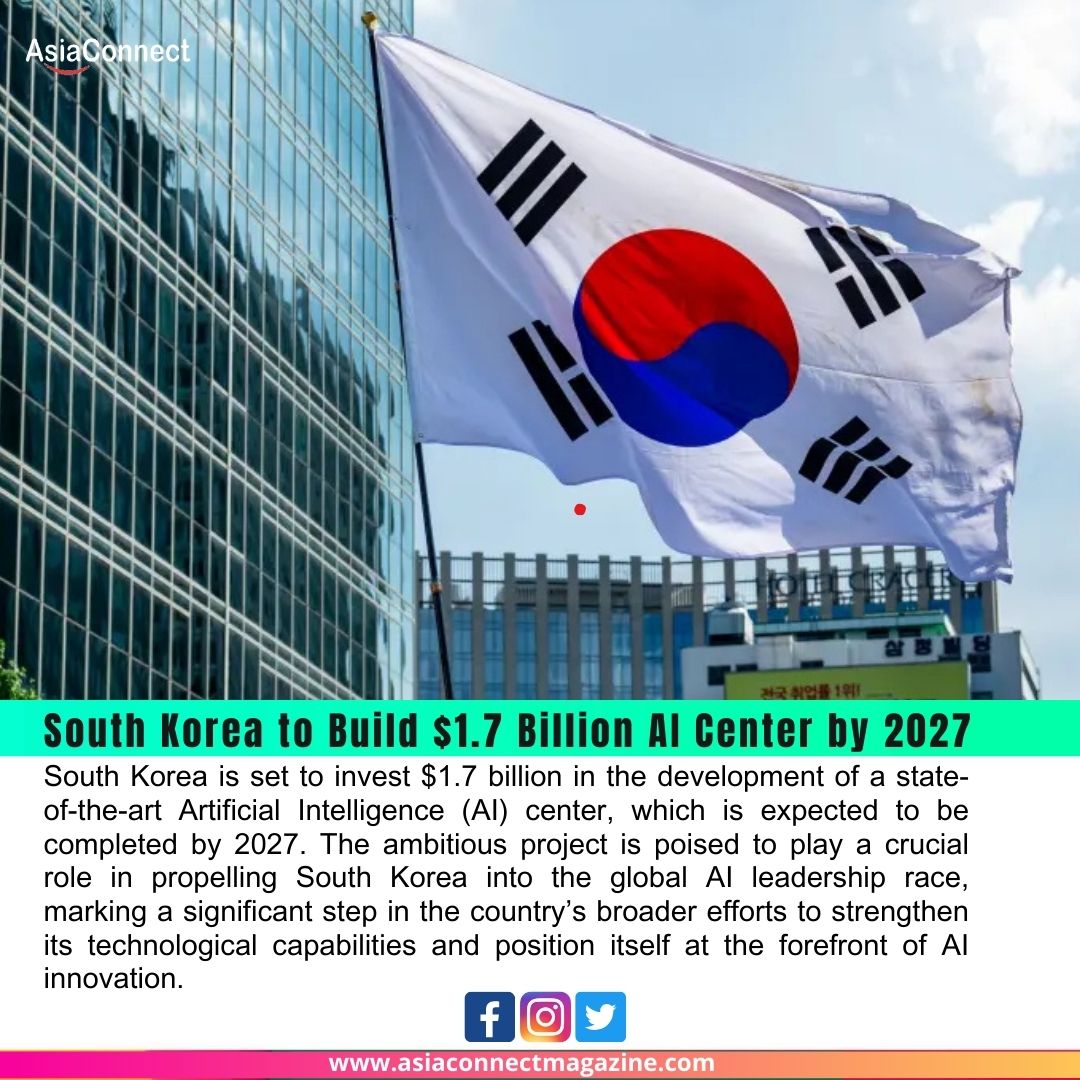South Korea is set to invest $1.7 billion in the development of a state-of-the-art Artificial Intelligence (AI) center, which is expected to be completed by 2027. The ambitious project is poised to play a crucial role in propelling South Korea into the global AI leadership race, marking a significant step in the country’s broader efforts to strengthen its technological capabilities and position itself at the forefront of AI innovation.
Aiming for 1 Exaflop Computing Capacity
One of the most remarkable features of the new AI center will be its unprecedented computing capacity. The center will be designed to achieve a computing performance of 1 exaflop—equivalent to one quintillion (1 billion billion) floating-point operations per second. This ambitious milestone places the center among the world’s most powerful AI computing infrastructures, on par with the most advanced research centers globally.
Exaflop-level computing capacity is essential for the kinds of AI models and applications that require immense processing power, including machine learning algorithms, deep learning, natural language processing, and complex simulations. By achieving this level of performance, the center will be able to handle cutting-edge AI research, significantly improving South Korea’s capabilities in fields such as autonomous driving, healthcare, and robotics.
Strategic Importance of the AI Center
The establishment of the AI center is a key element of South Korea’s broader push to become a global leader in the rapidly evolving AI space. In recent years, the country has made substantial investments in the development of AI technologies, and the new center represents a major leap in these efforts. South Korea aims to use this facility not only to accelerate research and development but also to foster a thriving AI ecosystem that will support innovation and collaboration across industries.
By establishing such an advanced AI infrastructure, South Korea hopes to enhance its competitiveness in AI-driven industries, such as manufacturing, finance, and logistics. Moreover, the center will serve as a hub for collaboration with universities, research institutions, and private companies, facilitating the growth of AI talent and the commercialization of AI technologies.
This investment in AI aligns with the government’s broader economic strategy, which seeks to leverage technological advancements to drive future growth and create high-value jobs. The AI center will be instrumental in achieving these goals, as it will help attract both domestic and international investment, promote knowledge-sharing, and cultivate AI expertise that can be applied across sectors.
Global Implications of South Korea’s AI Push
South Korea’s $1.7 billion AI center is not just significant for the country itself; it also has broader global implications. As AI technology continues to reshape industries and societies, nations that can harness the power of AI will hold a competitive edge in the global economy. By investing heavily in this area, South Korea is signaling its intent to play a central role in the global AI ecosystem.
The center will also contribute to international efforts to address the ethical, social, and economic challenges posed by AI. With AI’s growing influence across all sectors, including governance, defense, healthcare, and education, South Korea’s initiative could play a vital role in shaping global AI standards and best practices.
Conclusion
With its planned $1.7 billion AI center, South Korea is set to position itself as a major player in the global AI landscape. By reaching the milestone of 1 exaflop in computing power, the center will help accelerate AI advancements, foster innovation, and cement South Korea’s status as a leading technology hub. As the center progresses toward its completion in 2027, it will be fascinating to see how it contributes to the country’s AI ambitions and influences the future of AI technology worldwide.





